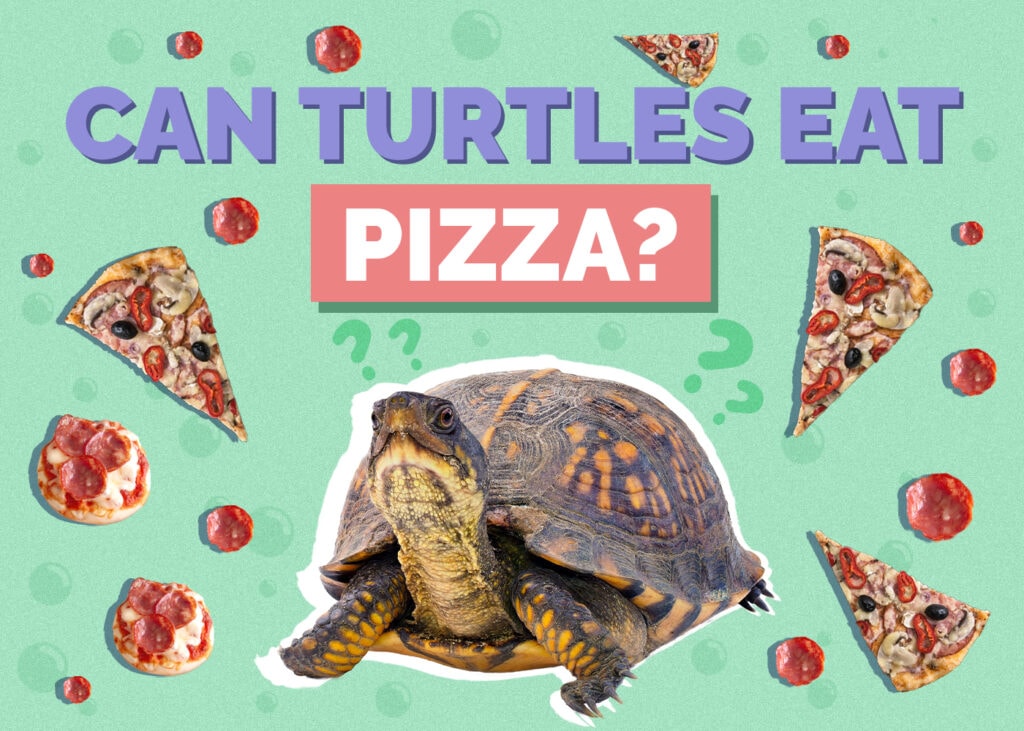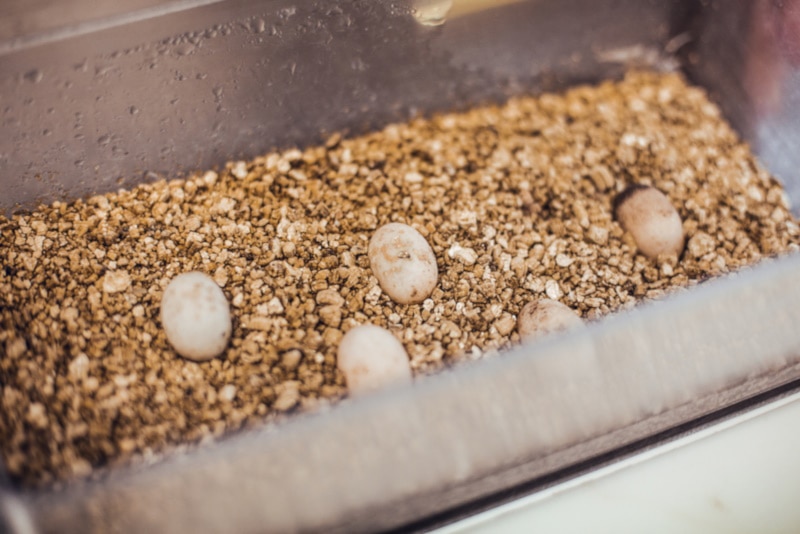Can Turtles Eat Pizza? Vet Reviewed Nutritional Science & Safety Guide
Updated on

Click to Skip Ahead
Fans of Teenage Mutant Ninja Turtles know that a turtle’s favorite food is pizza, but how true is that really? Sadly, turtles cannot eat pizza under any circumstances. Turtles lack the enzymes in their stomachs to process dairy products like we do, so the cheese alone makes it a no-go. The high fat and sodium in your average pizza are also extremely unhealthy for them, not to mention the cholesterol bombs we load on it, like pepperoni or bacon.
Turtles may not be able to indulge in pizza when we order out, but what about other ingredients we use in pizza? Join us below as we touch on that topic as well as some other invaluable info on what turtles usually eat and how to make sure they have the best possible diet.
Pizza and Turtles: What’s Good and What’s Bad?
We already established that turtles can’t actually eat pizza like we do because of the cheese, but what about the other ingredients? You know, the stuff like veggies that we add to make ourselves feel like we’re ordering something halfway healthy? While some stuff like spinach and tomatoes is safe for turtles and they’ll gladly gobble it up on the side, it’s inedible to them on your typical slice of ‘za. As a general rule of thumb, no processed human food is safe for pet turtles to eat.

What Do Turtles Eat?
That’s a bit of a trick question since many factors play a role in determining a turtle’s diet. The main factor to consider is a turtle’s species. It is a common misconception that all freshwater turtles are omnivores. Some species are carnivores and likewise, some species are herbivores. Therefore, what’s acceptable for one turtle species might not work for another.
Like some other reptiles, certain species of turtles have a dietary bias depending on their age, and tend to lean towards a more carnivorous diet when they’re young. For such turtles, the excess inclusion of plant matter in their diet is seen as detrimental to their health. At the same time, overindulging these turtles with calorie-dense foods is just as detrimental for their health, as it disrupts normal growth patterns and may lead to an obese pet (contrary to popular belief, turtles can indeed get overweight or obese).
With so many factors in play when it comes to determining your turtle’s diet, it is strongly advised to consult an exotic veterinarian to formulate a meal plan that works best for your pet. Please keep in mind that your pet’s nutritional needs will change throughout their life, and therefore, you should periodically check in with your veterinarian for an updated meal plan that best suits your pet.
Signs of a Healthy Turtle Diet
Though formulating a turtle’s diet is something that definitely requires veterinary input, there are some measures you can take to ensure that your pet is getting appropriate nutrition.
- A healthy shell. A healthy shell is one of the best signs of a turtle’s nutritional health. Your pet’s shell should not be deformed or brittle. Freshwater turtles should periodically shed their shells, and the scutes should be translucent, and the new shell should not be discolored or malformed. A turtle’s shell should also not appear overly stacked or dome-like.
- Normal Growth & Eating Habits. Turtles fed an appropriate diet will grow at a rate that’s considered normal for their species. Their beak (the tip of their “lips”) will not appear to protrude outwards in the shape of a sharp triangle, and they will have an appetite.
- Normal Defecation. Healthy turtles will defecate normally, and not experience episodes of diarrhea or digestive distress. The telltale sign of digestive distress is a turtle that refuses to eat and stays withdrawn in their shell.
- No Illnesses. Nutrition plays an important part in your turtle’s health and overall well-being. Turtles on an appropriate nutritional plan should not show signs of illness that are associated with nutritional excesses or deficiencies.

Conclusion
Turtles eat a variety of foods, but that unfortunately doesn’t include pizza. It might vary from species to species, but most turtles do best with a balanced diet that caters to their individual needs.
Featured Image Credit: Riedelmeier, Pixabay













